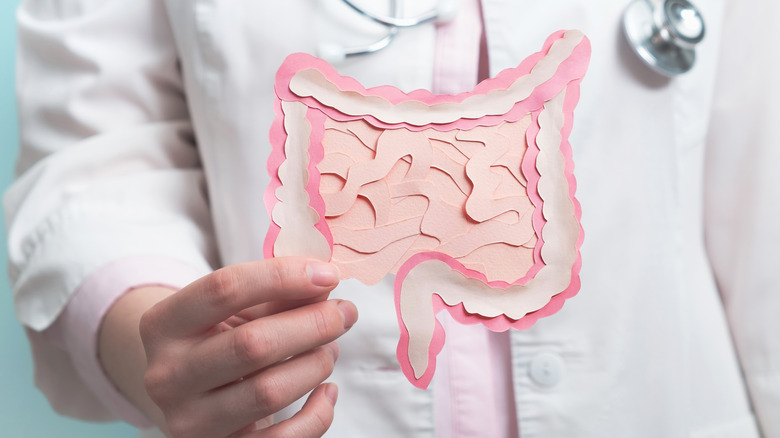Raja Dhir, Co-CEO Of Seed Health, Explains The Gut-Brain Connection And How It Affects Mental Health - Exclusive
Have you ever had "gut-wrenching pain" or experienced a tummy ache during stress? You may have heard that your gut and brain are connected. This isn't just a figure of speech — they are literally linked. Your stomach and brain are actually connected through communication pathways.
"The gut-brain connection — or, more specifically, the microbiome gut-brain axis — is the rich and complex network of physiological pathways that link our gut to our brain," explains Raja Dhir, the co-CEO of Seed Health, a microbiome science company. Dhir leads environmental research and academic collaborations with a focus on the gut microbiome.
Your digestive system responds to your emotions. Thoughts and feelings like anxiety, fear, grief, and sadness can all impact the gut, causing a wide range of gastrointestinal symptoms (via Harvard Health). But this connection is a two-way street. In an exclusive interview with Health Digest, Dhir dissected how the gut-brain connection works and how it can affect our mental health.
The gut-brain connection explained
Your gut and brain are literally physically connected. "The gut and brain use various forms of communication to converse, the most prominent physical connection and pathway being via the vagus nerve, one of the longest nerves in the human body. Other messages are sent in the form of microbial metabolites such as organic acids (like short-chain fatty acids), proteins, fats, and neurotransmitters, which reach the brain by hitching a ride through blood vessels or stimulating the vagus nerve," said Raja Dhir.
The vagus nerve actually sends signals both directions in the body (via Healthline), which sheds light on how the gut-brain connection works both ways. "The gut-brain axis is a bidirectional line of communication, meaning that gut health impacts brain health, and vice versa," Dhir said.
This means that gut issues can be the cause or the result of mental health struggles like stress, anxiety, and depression. This might be particularly true for those that have unexplained, mystery gut issues and are struggling to find a diagnosis (via Harvard Health).
The connection is backed by science
According to Raja Dhir, by closely looking into this gut-brain crosstalk, researchers have established that this complex communication system not only impacts digestion, but also balances the immune and pain response, metabolism, mood, social behavior, and cognition. Recent research has confirmed the connection between the gut microbiome and some mood disorders, and animal research has also confirmed that the gut microbiome can alter mood and behavior. Other findings back up the theory that gut health is linked to mental and emotional issues like stress, anxiety, and depression. In addition, the gut-brain axis is believed to be a contributing factor to a growing number of psychological and neurological diseases, including autism, Parkinson's, Alzheimer's, and irritable bowel syndrome (IBS).
"We are still far from understanding it all, but the gut-brain axis presents itself as a conduit to rethink the way we approach the standards of treatment for psychiatric and gastrointestinal disorders alike, transforming the way we think through management of psychiatric disorders," said Dhir.
Seed Health is working toward advancements in gut-brain research, which present the potential to impact well-being in areas like anxiety, depression, and stress response, reimagining ways to approach mental health.



